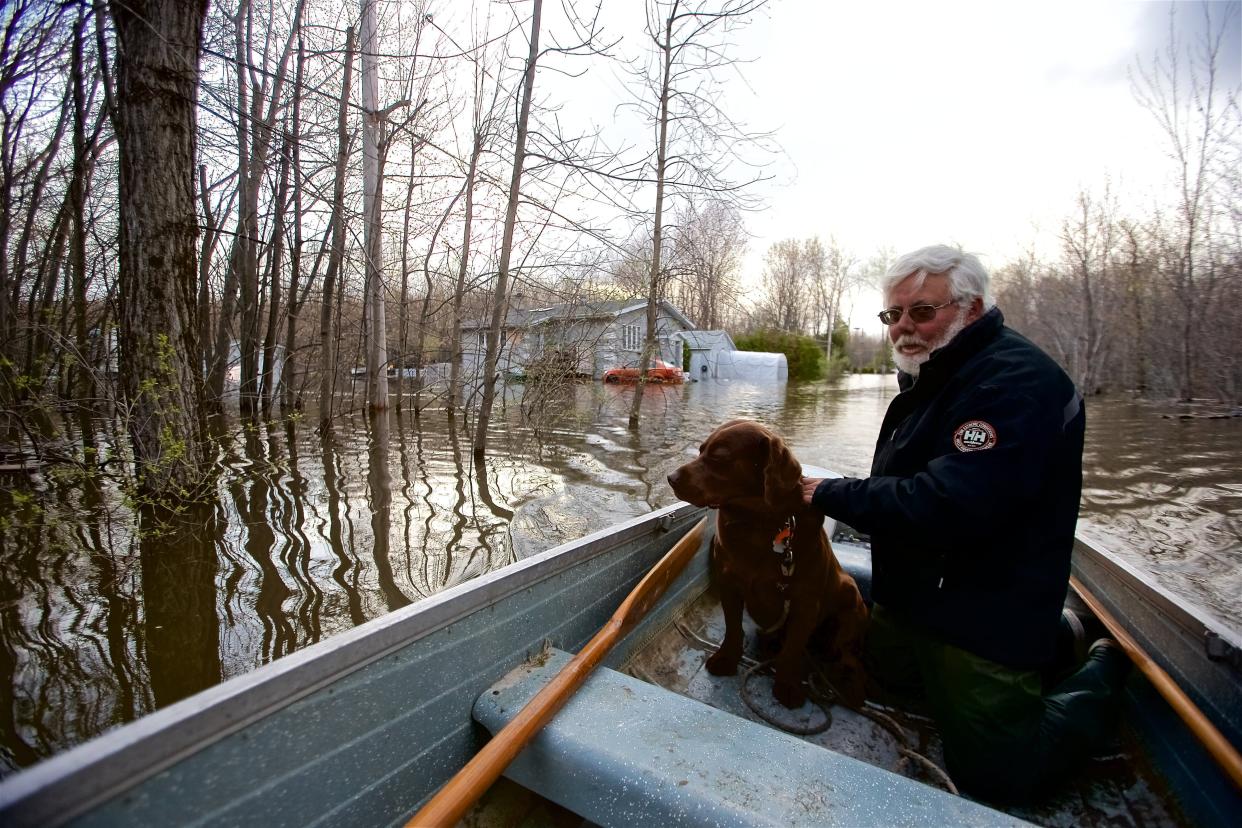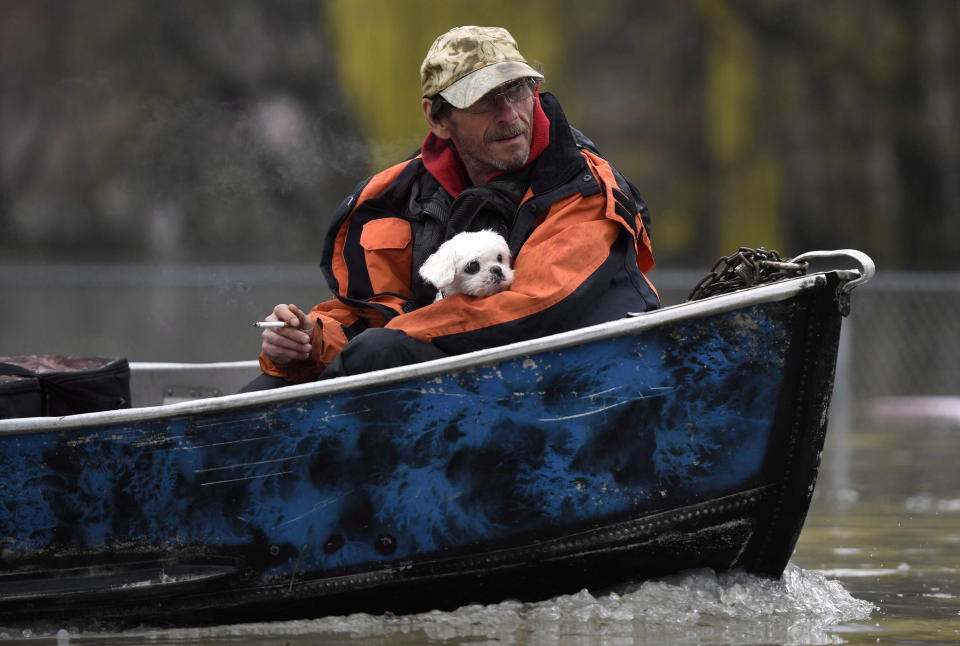Floodwater can pose a risk to pets' health: What you need to know

The flooding that continues to wreak havoc across Eastern Canada, Quebec and Ontario has many pet owners wondering what to do with their furry friends in case of a flood.
A veterinarian in Moncton, N.B. has already treated several animals for flood-related injuries and illnesses this season. Dogs have stepped on sharp objects including nails and are at risk of gastrointestinal infections if they have been exposed to floodwater that could be contaminated with fecal matter, oil, or bacteria like Cryptosporidium or Giardia, Brett Tremble told Global News.
Dogs and cats can also be impacted by the stress of flooding or having to be relocated as a result.
But, the last thing pet parents want to do is scramble if severe floods end up affecting their home or neighbourhood. There are lots of ways to protect and care for your pets when water levels are rising.
“The best message is to be prepared,” says Marla Brillinger, veterinary assistant and community outreach manager at Mountainside Animal Hospital & 24 Hour Emergency Services in North Vancouver. “Make sure your pet has current identification on them—a collar, microchip, or tattoo. Have a current photo in case they get lost.
ALSO SEE: Should you move if you live in a flood zone? How to protect your home and when to consider leaving
“Make sure you have a pet carrier ready to go and a stockpile of food, water, medications, and bedding,” she continues. “Consider making or purchasing an inexpensive, basic pet first-aid kit.”
Keeping pets vaccinated is crucial: cases of leptospirosis, for example, can increase after floods when pets come into contact with contaminated water or consume it, according to the Centers for Disease Control and Prevention.
Leptospirosis is a bacterial disease that can cause bleeding and difficulty breathing and lead to serious illnesses such as kidney or liver failure, meningitis; it can also be fatal. It can be spread by dogs, livestock, rodents, and wildlife, and animal urine in the soil can run into floodwater, contaminating it. Streams and other natural sources of water can also be contaminated.
“Watch for vomiting, diarrhea, loss of appetite, heavy breathing, and itchy skin,” says Alberta doctor of veterinary medicine Charlene Knapp-Miller. “Tacky gums, tenting of the skin, and sunken eyes are signs advanced dehydration.”
If you have to take your pets out of the home, Knapp-Miller says to use a leash, never leave them alone, and wash their feet after a walk.
If a pet is covered in flood water, you can bathe them using clean water and ideally, a pet-specific shampoo or soap suitable for the pH levels in their skin specific to animals; otherwise use a gentle soap or cleanser, Brillinger says.
“If the flood water is petroleum-based or has oil in it, dishwashing soap can help,” she says. “Remember that dishwashing liquid and human cleansers should only be used short-term in emergencies as they can cause irritation, dry skin, and other problems long-term due to the nature of cat and dog integumentary system [skin, hair, fur, and associated glands] that varies so much from humans.”

ALSO SEE: Flooding in Ontario, Quebec and New Brunswick
When bathing an animal, Knapp-Miller suggests using artificial tears to protect its eyes and placing a rubber bath mat in the tub to avoid injury. Clean pets’ ears with cotton balls.
If you get advanced notice of flooding, you may want to relocate your pet to a friend or family’s home.
Ways of reducing stress if an animal has to be re-located can be as simple as making sure they have access to toys, blankets, or T-shirts that smell like home and their human family, Brillinger says.
“Cats and some dogs feel safe being in their carrier or crate with a towel covering to make them feel secure and to shut out some of the stressful stimuli they might be exposed to,” Brillinger says. “Products such as Feliway sprays and diffusers have proven to reduce stress and anxiety in some animals. Continue to feed them the same food and try to minimize any further changes or stresses.”
Remember, too, that when water recedes, there is still possible contamination in the soil from sewage, agricultural waste, or chemicals from roadways, Knapp-Miller notes.
“Have medications and health papers handy to take to the vet if the need arises,” she says. “Keep a regular schedule for feeding, walks, and play time if you’re able to.”
Let us know what you think by commenting below and tweeting @YahooStyleCA!Follow us on Twitter andInstagram.
Check out Yahoo Canada’s podcast, Make It Reign — our hot takes on all things royals in a non-stuffy way — onApple Podcasts and Google Podcasts.


